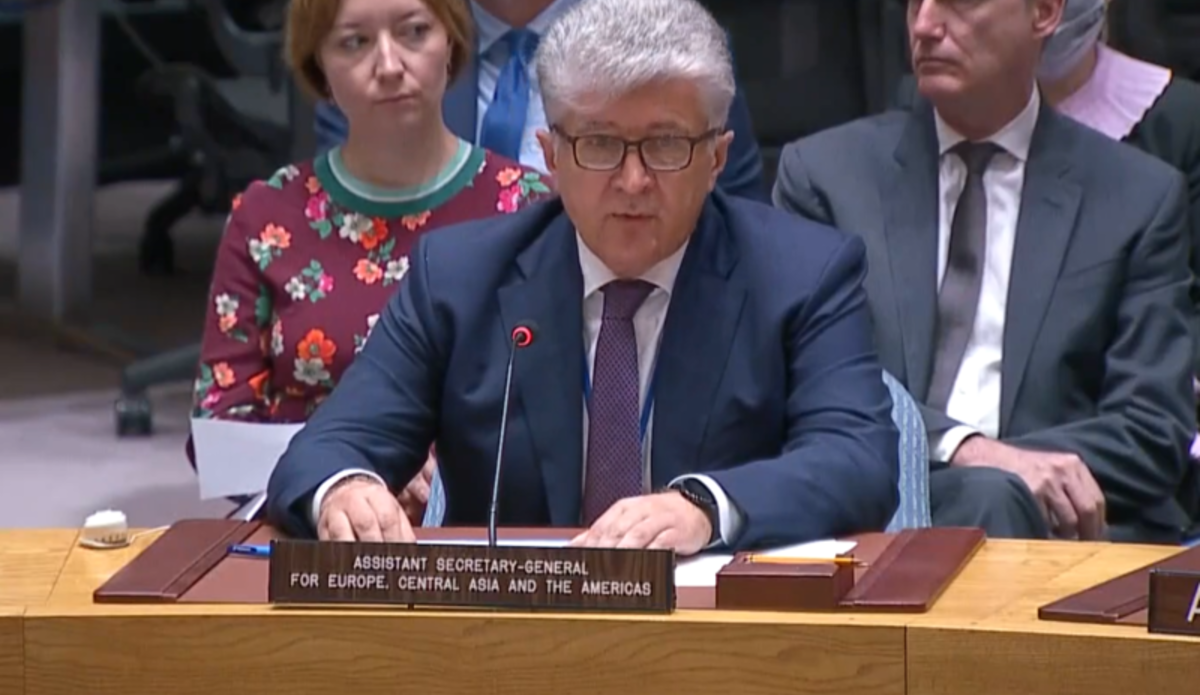Mr. President,
Esteemed members of the Council,
I thank you for convening this meeting and for providing the opportunity to brief you on recent developments in the South Caucasus.
On the evening of 12 September, the authorities in Armenia and Azerbaijan reported heavy fighting on their international border. According to reports, heavy artillery, drones and large-caliber weapons were used. The exchange of fire reportedly continued through 13 and 14 September. Yesterday evening, it was announced that a cease-fire had been agreed starting at 8 PM local time. We welcome this agreement and hope the ceasefire will hold.
Earlier this week, the Armenian Ministry of Defense stated that the Azerbaijani side was targeting Armenian military positions, as well as civilian infrastructure, in the Gegharkunik, Vayots Dzor and Syunik regions of the country. Armenia reported 105 of its servicemen killed and six civilians wounded as of last night. While Armenia called the events a deliberate attack, Azerbaijan countered that they were “retaliatory measures” made in response to provocations from Armenia. Azerbaijan, for its part, reported 71 servicemen killed and two civilians wounded.
Both countries have written to the Secretary-General and to the Security Council alleging violations of the ceasefire brokered by Russia in 2020, and of their territorial integrity.
The United Nations is not in a position to verify or confirm the specifics of these reports. We remain deeply concerned, however, over this dangerous escalation, including its possible impact on civilians, and have urged the sides to take immediate and concrete steps to deescalate tensions. The UN Country Teams in both Armenia and Azerbaijan maintain open channels with the authorities and stand prepared to respond to emerging humanitarian needs, if requested and as conditions allow.
Mr. President,
The fighting this week was the latest and the largest in a series of incidents since 2020. It highlights the fact that the process of normalization of relations between Armenia and Azerbaijan continues to encounter serious obstacles.
This escalation also underscores the urgent need for the parties to move forward in the ongoing process of delimitation and demarcation within the framework of mutual recognition of their territorial integrity and sovereignty. We urge the parties to take advantage of this important mechanism as an essential step towards alleviating tensions at the border.
This week’s events are also a stark reminder that tensions between Armenia and Azerbaijan also have the potential to destabilize the region. They highlight the need for all actors, in the region and beyond, to act constructively and to press the sides to work for a peaceful settlement.
In this regard, a number of mediation efforts have been ongoing in the region, including by the Russian Federation and the European Union. We fully support these international efforts. They can lay the groundwork that would allow the parties to resume dialogue towards long-term peace. The Collective Security Treaty Organization, at the request of Armenia, will send a mission to the Armenia to assess the situation on the border, and report back to its Member States. The United Nations remains in close contact with concerned parties and organizations, including the Organization for Security and Cooperation in Europe.
During my recent visit to the region, I was able to assess first-hand the challenges being faced in resolving the long-lasting conflict. I returned with the conviction that while differences and mistrust persist between the sides, these are surmountable.
Mr. President,
The international community must remain fully committed to a peaceful settlement between Armenia and Azerbaijan and spare no effort to deescalate the current tensions, bring the parties back to the negotiating table and help them achieve peace and stability in the region.
In the immediate term, the parties must abide by their obligation to fully implement the Trilateral statement on the ceasefire of 9 November 2020. We urge them to return to the negotiating table and take steps towards the signing of a lasting peace treaty. It will be important that a similar unified message come from the Security Council for the parties to focus on a diplomatic solution.
Thank you.

